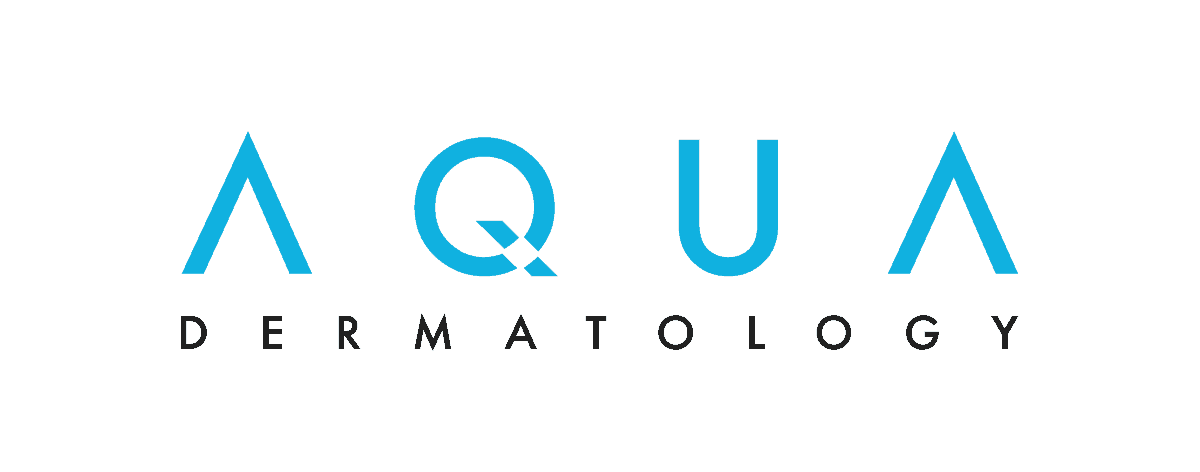
Acne is no fun for anyone, but acne in Black skin and other skin of color often poses a special challenge. Inflammation from inflammatory acne — or even some harsh products used to treat acne — can leave behind dark spots, known as post-inflammatory hyperpigmentation (PIH), which often last longer than the acne itself.
“Sometimes the treatment can cause PIH if the wrong product is used or if the patient is being treated by someone who isn’t experienced in treating acne in skin of color,” said Kimberly Van Keuren, director of cosmetic services at Water’s Edge Dermatology.
Dark skin, seen in people of African, Asian, Hispanic, Mediterranean, Middle Eastern and Native American descent, contains more melanin, the natural pigment that gives skin its color. Inflammation can trigger the skin to produce additional melanin, potentially leading to dark spots.
The solution, said Van Keuren, is to treat the acne early, before it gets bad, and start with the gentlest of acne products, working in partnership with your skin-care provider to limit inflammation from both the acne and the acne treatment. Read on to discover more advice for treating acne in Black skin and other skin of color.
RELATED: How to Get Rid of Acne Scars
Consult with a skin-care provider
“I like to think of the treatment of acne as a partnership between the provider and patient,” said Van Keuren. Because each person’s skin is unique, treating acne requires a customized plan, which may involve a combination of different products and other treatments — and some trial and error.
“What works for your sister or friend may be too harsh for you and cause further skin damage,” said Van Keuren.
During follow-up appointments, the provider can help you adjust your at-home regimen and may recommend an in-office treatment, such as enzyme or chemical exfoliation, to keep your skin looking its best.
“Chemical and enzyme peels help to even skin tone and smooth texture,” said Dr. Rachelle Lacey, a board-certified dermatologist at Water’s Edge Dermatology. “I find that superficial to medium-depth peels such glycolic acid peels can help fade the dark marks left behind by inflammatory acne.”
It is important to consult with a skin care provider who has significant experience treating skin of color before having a chemical peel, microdermabrasion or laser therapy because certain treatments can cause hyperpigmentation in darker skin.
Start with gentler products
Using a harsh acne product, such as one that contains a high concentration of benzoyl peroxide, can backfire.
“The treatment for acne may reverse or shorten breakouts, but on the other hand, it can dry out and irritate the skin. It’s a vicious cycle that can leave some people feeling defeated,” said Van Keuren.
Many experts advise treating mild acne with a low-dose retinoid to unclog pores, reduce inflammation and help prevent new breakouts (retinoids can also help fade dark spots), and benzoyl peroxide to get rid of the bacteria that cause acne.
“The staples in my regimen include a benzoyl peroxide product and a retinoid such as adapalene or tretinoin,” said Dr. Lacey. “Both of these medications target different problems in the acne pathway and work quite well together.”
Start with a 2.5% concentration of benzoyl peroxide. (Don’t worry, it may bleach clothing and towels but it won’t bleach your skin.) If that’s too strong, try using it every other day.
In addition to benzoyl peroxide and retinoids, Van Keuren likes toning pads containing glycolic acid or salicylic acid. These gentle acids help unclog pores and prevent new acne breakouts.
Also think gentle when it comes to choosing a cleanser, and don’t scrub. Apply it with your fingertips using a circular motion.
Protect yourself from the sun
“For some reason there is a myth that people of color can’t get sunburns or skin cancer,” said Van Keuren. But these aren’t the only risks of sun exposure. “The sun on active, inflamed acne creates new hyperpigmentation. It can also darken existing hyperpigmentation.”
Using a broad-spectrum sunscreen daily can help fade dark spots left behind by acne while also protecting against future ones, according to Dr. Lacey. She recommends choosing a sunscreen carefully, as not all are friendly to acne-prone skin.
“When selecting an SPF, look for words such as ‘non-comedogenic’ or ‘oil free,'” Dr. Lacey advised. “La Roche-Posay, Avene and CeraVe are great choices.”
Check your hair products and makeup
If your acne is limited to your upper forehead and/or temples, one of your hair products may be to blame. For example, oil- or cream-based hair serums and pomades are common culprits. Shampoos that contain sulfates may also trigger acne in some people. Try switching hair products and see if it helps.
If you use makeup to cover dark spots, your makeup could be making your acne worse. The American Academy of Dermatology suggests choosing mineral makeup or makeup labeled “non-comedogenic.”
“There are some great, natural-looking, non-comedogenic makeup products that work well,” said Van Keuren. “I’ve yet to find one that matches my skin tone, so I combine a couple of products to get the best color match.”
Resist the urge to pop pimples
As tempting as being your own Dr. Pimple Popper can be, resist the urge to pop pimples. Popping a pimple can push bacteria deeper into the skin and increase the risk for swelling, redness and scarring.
Treating dark spots
Skin lighteners can gradually fade dark spots and also brighten the skin. Ingredients to look for include hydroquinone, vitamin C and a retinoid such as retinol, tretinoin, adapalene or tazarotene.
“We seem to be re-discovering and combining different lightening agents all the time,” said Dr. Lacey. “My favorite lightening product at the moment is the SkinCeuticals Discoloration Defense, which contains 3% tranexamic acid, 1% kojic acid and 5% niacinamide. It is great for slowly fading discoloration left by acne.”
As with acne treatments, skin lighteners need time to work, so be patient. It could take months to being seeing results.
Acne and the dark spots that linger afterward aren’t insurmountable. With some diligence and the help of an experienced skin-care provider, you can achieve the clear, even-toned skin you long for.
Article Written By: Sheryl Kraft, a freelance journalist specializing in health and wellness. Sheryl’s work has appeared in CNBC, Parade Magazine, PBS Next Avenue, Everyday Health and Weight Watchers. She’s also written for Jenny Craig, Prevention and many others.
Medical Review By: Rachelle Lacey, MD





